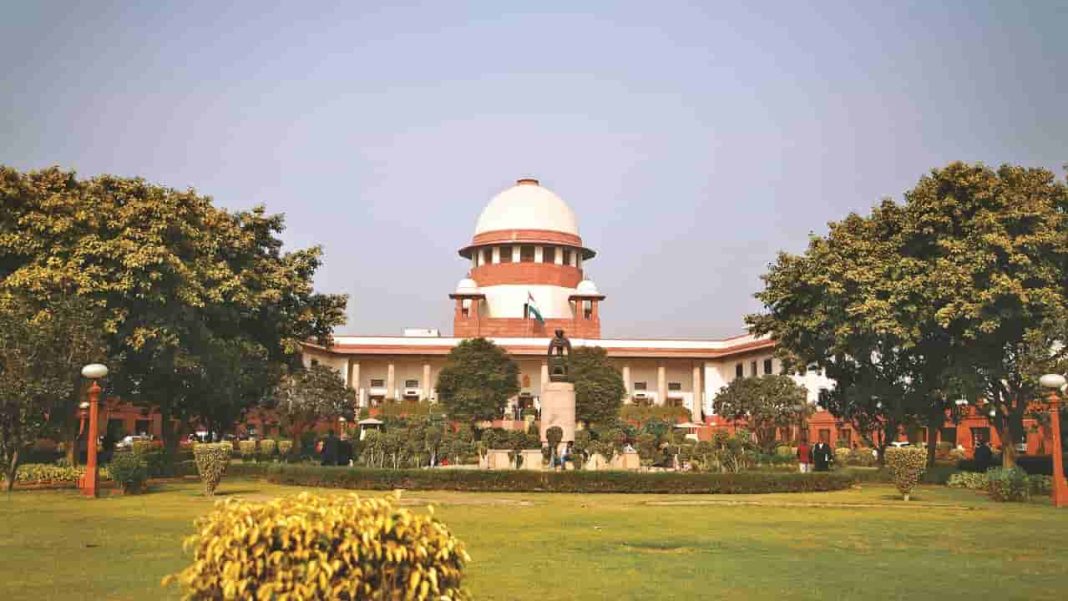Senior Advocate Kapil Sibal has concluded his arguments in the Supreme Court regarding the Constitutional crisis arising in Maharashtra after the regime change in July, 2022.
Appearing for the Uddhav Thackeray camp before the Constitution Bench of Chief Justice of India (CJI) D.Y. Chandrachud, Justice MR Shah, Justice Krishna Murari, Justice Hima Kohli and Justice P.S. Narasimha, Sibal said in order to maintain the institutional integrity, it was important that constitutional processes survived in the country.
He argued that the Governor’s actions in the political crisis have been unconstitutional.
Sibal said if the Apex Court upheld this, it would be the death knell of what has been upheld since the 1950s.
The Senior Advocate argued that the Governor was not empowered in law to recognise rebel MLAs of a political party and legitimise their actions as the power to recognise who represented a political party fell within the domain of the Election Commission.
He contended that the fact that the Governor gave an audience to Eknath Shinde and gave him an oath as the Chief Minister raised questions about his actions.
Sibal asked the Governor, in what capacity did he give an audience to Eknath Shinde and administer him oath as CM, when Uddhav Thackeray was the president of Shiv Sena.
He said the Governor recognised a split, which was not a valid ground under the Tenth schedule. This was not a stage when a government was being elected, but when an elected government was running, he added.
Sibal contended that as per the verdict in Nabam Rebia, the Governor only had discretionary powers in situations arising under Articles 371, 200 and 356 of the Constitution and in cases where the forming of a government was at the initial stage after election.
He submitted that there was no discretion after an elected government was formed. If there was a no-confidence motion or the government fell, then the Governor had discretion. But a Governor by his action could not topple the government, he added.
The Senior Counsel said when the Governor was approached by Eknath Shinde and BJP, the former told the Uddhav camp to have a trust vote.
Sibal questioned the ground on which the Governor asked the Uddhav Thackeray faction to go for trust vote.
He contended that the Governor obviously recognised the 39 MLAs, otherwise he wouldn’t have asked the Uddhav Thackeray faction for a trust vote.
Ultimately, the facts were so crystal clear that they couldn’t be subject of yet another interpretation, he added.
The CJI directed the Senior Advocate to
seek clarity on whether the Governor of a state could call for a motion of confidence if a group of MLAs incurred disqualification and lost their seat in the House.
As per the CJI, once a person incurred a disqualification, then the consequence under Art 193(3) was that his seat became vacant. If a group of MLAs incurred disqualification, the strength of the House would fall by the extent of disqualification. In such a case, the majority required a motion of confidence.
He asked whether in such a case the Governor would be justified in saying that he still wanted a vote of confidence?
Sibal argued that it was not for the Governor to call for a trust vote in such a scenario, but for the people in the House to approach the Governor.
The Senior Counsel stated that the Governor must come to the conclusion that the Leader of the House has lost the majority when somebody approached him.
CJI Chandrachud suggested that both the opposition and the defecting MLAs could approach the Governor, but Sibal disagreed, saying that they would not be able do it now.
The CJI then observed that the Governor could not enter the thicket of disqualification. He said the Governor could not do anything to protect those who had seen the wrath of disqualification.
He further mentioned the Constitutional principle, which said that the Chief Minister held accountability to the Parliament and the people.
Sibal contended that regardless of the majority or minority, destabilising a government was not acceptable. He said if BJP thought Shiv Sena had lost the majority, they should have moved a motion. Those 39 MLAs were still a part of Shiv Sena, he asserted.
He said the Governor recognised the split. Ideally, he should have refused further action and directed the MLAs to wait for a decision on their disqualification.
Sibal alleged that instead of moving a no confidence motion, they hatched a conspiracy and accordingly, went to Gujarat and Assam.
He said since the Governor knew that this government had not lost confidence, he did not call for a trust vote. If they were so concerned, they should have voted against the whip, he added.


